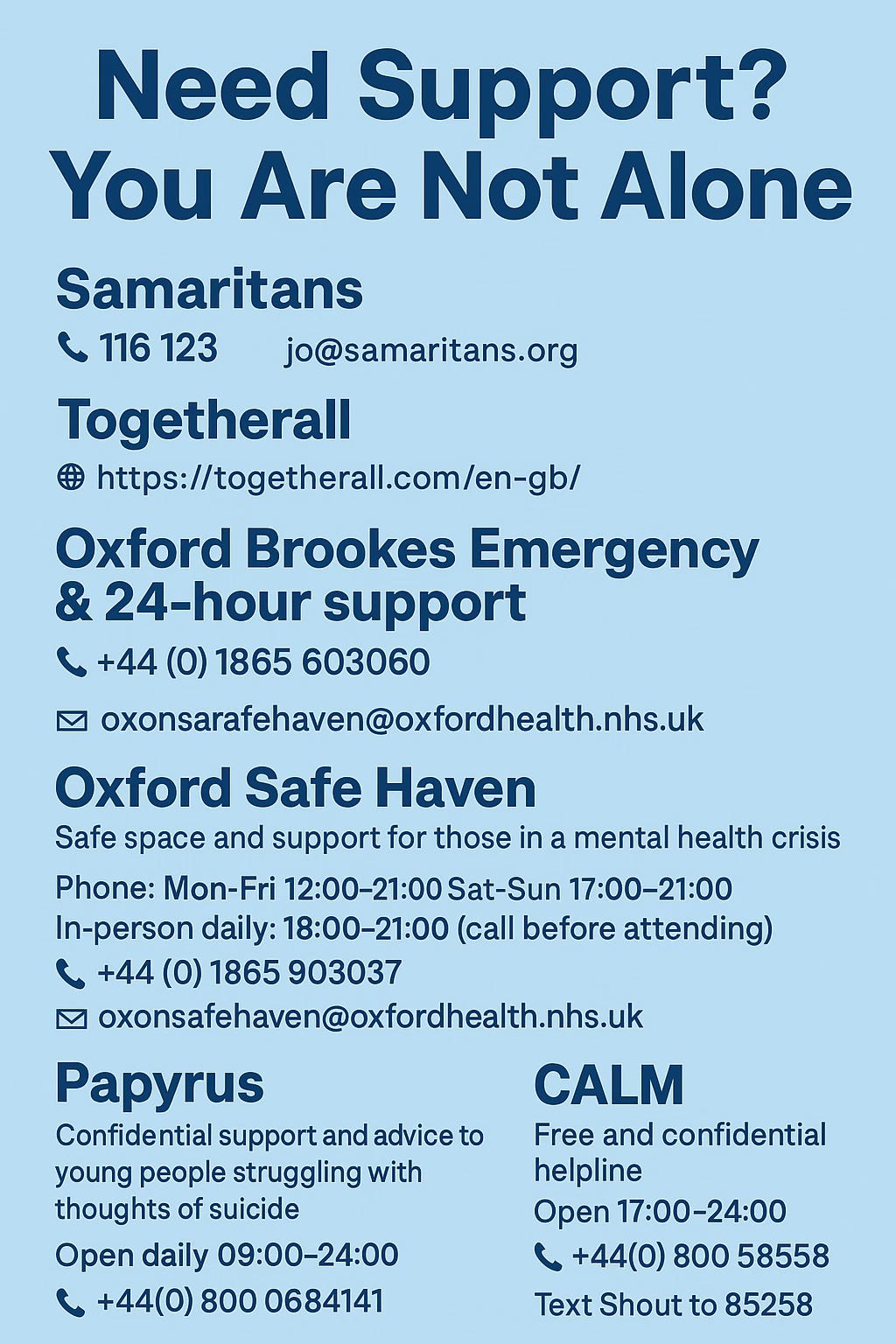Student’s Death Highlights Mental Health Challenges
University reminds students of counselling, peer support, and wellbeing services after inquest into student death ruled suicide.
Following the recent death of an Oxford Brookes student, which an inquest has ruled was a suicide, the university has reminded students of the range of mental health and wellbeing services available on and off campus.
Oxford Brookes University offers a staffed counselling and mental health service to registered students, providing one-to-one and online counselling, short-term therapy, group workshops, self-help resources, and referral to other support. The Counselling Service is free, confidential, and operates in accordance with professional standards. Students are encouraged to register for support through the service.
Brookes students also have access to Togetherall, a 24/7 online peer-support community moderated by trained clinicians. The platform offers anonymous forums, guided self-help courses, and mood-tracking tools. This service, along with other mental health resources, is explained to students during the national #UniMentalHealthDay, which will take place next year on Thursday, 12th March.
For academic or welfare concerns, students can speak with their Student Support Coordinator, who can help arrange extensions, mitigating circumstances, academic adjustments, or welfare checks. The Multifaith Chaplaincy offers non-clinical pastoral care for students of any or no faith, and Brookes Union Advice Service provides independent guidance on finance, housing, and wellbeing.
In urgent cases, the university guides students to external services, including NHS 111, local crisis teams, and national helplines such as Samaritans.
Oxford Brookes highlighted the range of mental health services available to students following an inquest at Oxford Coroner’s Court last week (13th November). It found that Oxford Brookes student Harry John Bartram, 21, died by suicide a few weeks after receiving an autism diagnosis. His housemate discovered Harry at their address on Southfield Road in Oxford, but unfortunately, when emergency services arrived, there were no lifesaving options available, and letters were found at the scene containing farewell messages.
Harry was also tested for attention deficit hyperactivity disorder (ADHD) and received an ADHD diagnosis in March following an assessment by Oxford Brain & Mind, which also identified wider neurodivergent traits.
It’s believed Harry struggled with social anxiety for much of his life and experienced a period of selective mutism during his childhood. He was also tested for autism in 2011, but did not meet the criteria for such a diagnosis at the time. Although Harry faced these issues, he still achieved exceptional A-level results.
.




